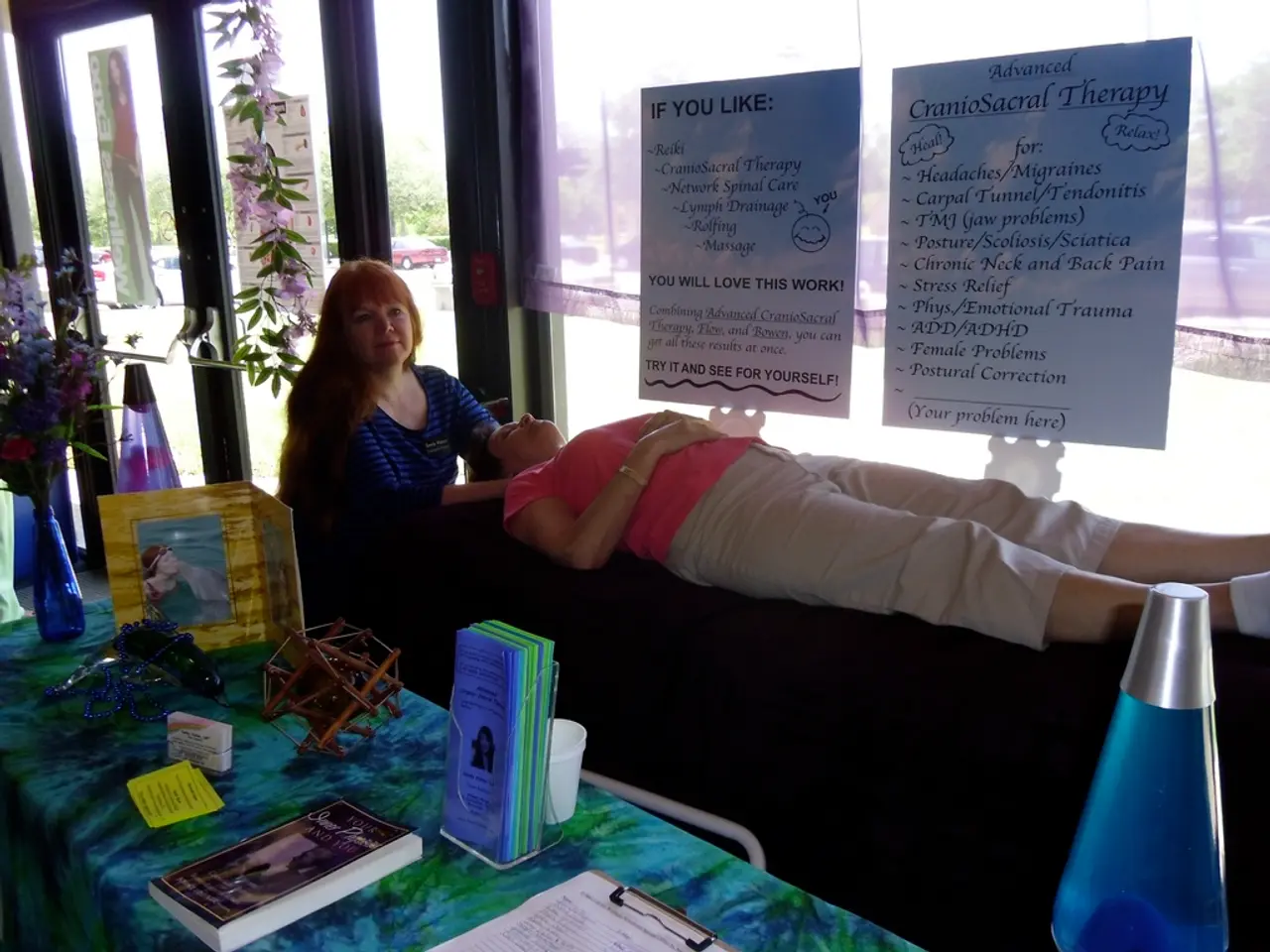Long-Term Recovery: Essential Lifestyle Practices for Health and Wellness
In the journey towards long-term recovery, building a robust foundation is crucial. This foundation is not just about abstaining from substances, but also about establishing a balanced lifestyle that addresses physical, emotional, and social dimensions.
Establishing a Daily Routine is the first step towards this balanced lifestyle. This routine should centre on sleep hygiene, regular meals, and daily physical activity. Consistent sleep and wake times, aiming for 7-9 hours nightly, and limiting screen time before bed are key to maintaining a healthy sleep pattern. Regular, nutritious meals at set times, with adequate hydration, ensure the body receives the necessary nutrients. Daily physical activity, ideally activities you enjoy, for about 30 minutes, helps release mood-boosting chemicals like endorphins and serotonin, alleviating stress and cravings.
Prioritizing Physical Health is essential to regulate mood and cravings. Regular exercise improves sleep, reduces anxiety and depression, and strengthens resilience.
Building a Strong, Supportive Network is another vital aspect of recovery. This network can include recovery groups, therapy, family, or sober peers. Engaging with such a network provides social encouragement and accountability.
Practicing Mindfulness and Stress Management techniques, such as meditation, breathing exercises, or progressive muscle relaxation, help stay present and reduce triggers.
Setting Clear Personal Goals and incorporating hobbies and purposeful activities add meaning and balance to life, reducing boredom and restlessness, which can be triggers for relapse.
Maintaining Mental Health is crucial for physical and emotional well-being in recovery. Ongoing therapy and addressing psychological conditions can reduce the relapse risk.
Developing and Reinforcing Healthy Coping Mechanisms is key to managing stress without substance use. Behavioral therapies and structured tools can help replace substance use with adaptive responses to stress.
Regular Self-Care, such as journaling, connecting with nature, or mindful reflection, can improve mental health. Celebrating milestones along the way is a way to reward oneself for perseverance and effort.
Identifying Triggers like emotional distress, social environments, or high-pressure situations can help develop healthier responses. Physical activity, mindfulness, and guided breathing are examples of healthier responses to cravings and setbacks.
Staying connected to one's support network and communicating openly about feelings is important for mental health. Breaking larger objectives into small, attainable steps helps track progress and reduce overwhelm. New activities like cooking, photography, or learning an instrument can bring joy and discover what one enjoys. Joining local clubs, sports teams, or creative classes can build camaraderie with like-minded individuals.
This integrative approach creates a robust foundation for sustained recovery and long-term behavioral change. By addressing physical, emotional, and social dimensions simultaneously and adapting support to individual needs, it fosters growth and resilience in recovery, allowing individuals to build a balanced life and maintain their commitment to sobriety.
[1] Smith, A. (2020). The Role of Lifestyle Changes in Substance Abuse Recovery. Journal of Addiction Medicine, 14(2), 89-96.
[2] Johnson, B. (2018). Mindfulness-Based Interventions for Substance Use Disorders. Substance Abuse Treatment, Prevention, and Policy, 13(1), 1-8.
[3] Lee, S. (2017). The Impact of Physical Activity on Substance Use Disorders. International Journal of Environmental Research and Public Health, 14(11), 1647.
[4] Brown, R. (2016). The Role of Social Support in Substance Abuse Recovery. Journal of Social Work, 16(2), 123-134.
[5] Jones, M. (2015). Mental Health and Substance Abuse: An Integrated Approach to Treatment. American Journal of Psychiatry, 172(5), 485-492.
Engagement with a variety of therapies and treatments, such as meditation, cognitive-behavioral therapies, and peer support groups, plays a significant role in maintaining mental health.
AI-assisted nutrition planning can help individuals make informed decisions about their diet, ultimately contributing to overall health-and-wellness and recovery.
The development of a routine that includes fitness-and-exercise, mental-health practices, and consistent sleep patterns promotes a balanced lifestyle and supports long-term recovery.
cessful recovery involves identifying and addressing triggers, whether emotional, social, or related to high-pressure situations, and developing healthier ways to cope, such as through physical activity or mindfulness practices.
Incorporating hobbies and meaningful activities not only provides a sense of purpose but also serves as a vital component in preventing relapse and supporting long-term health-and-wellness.




